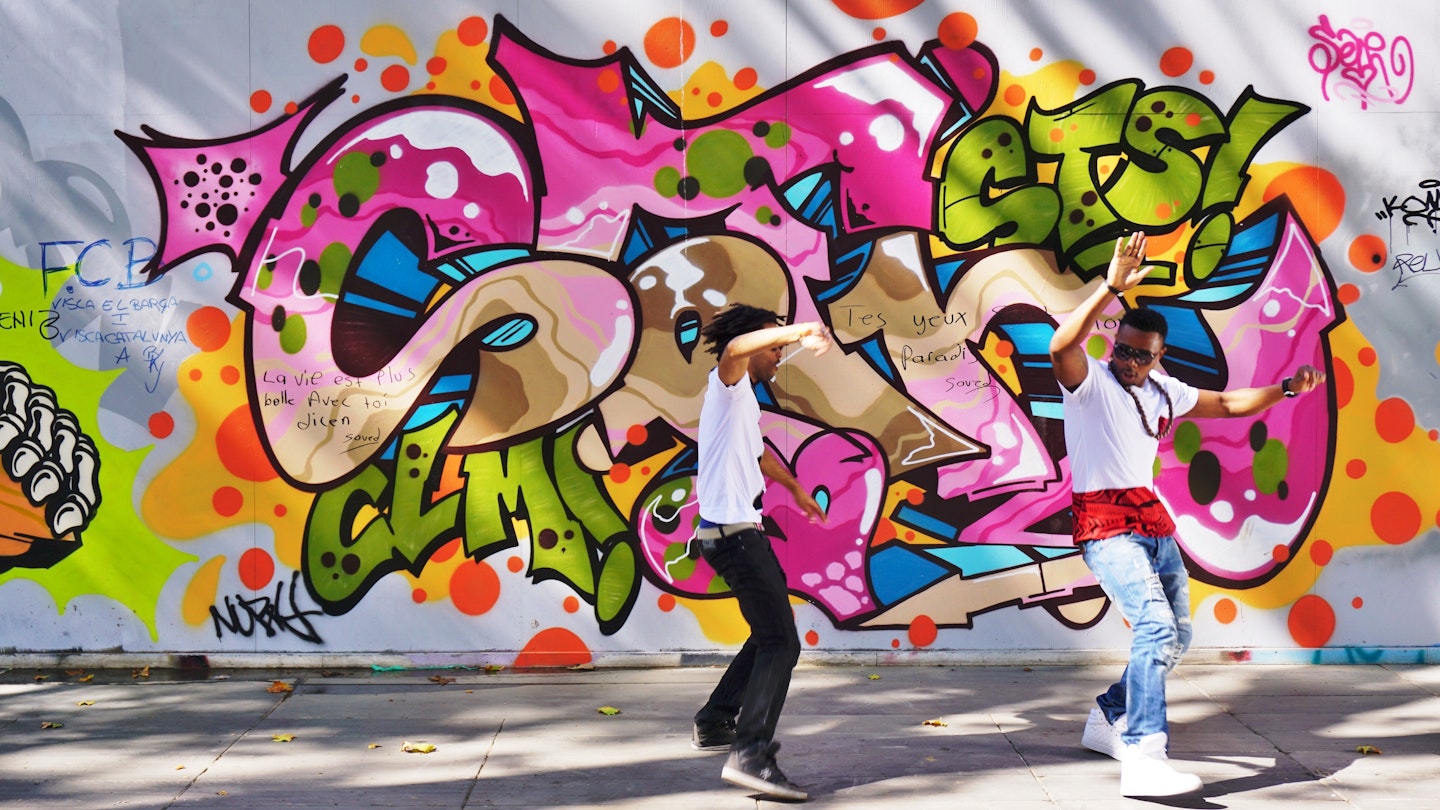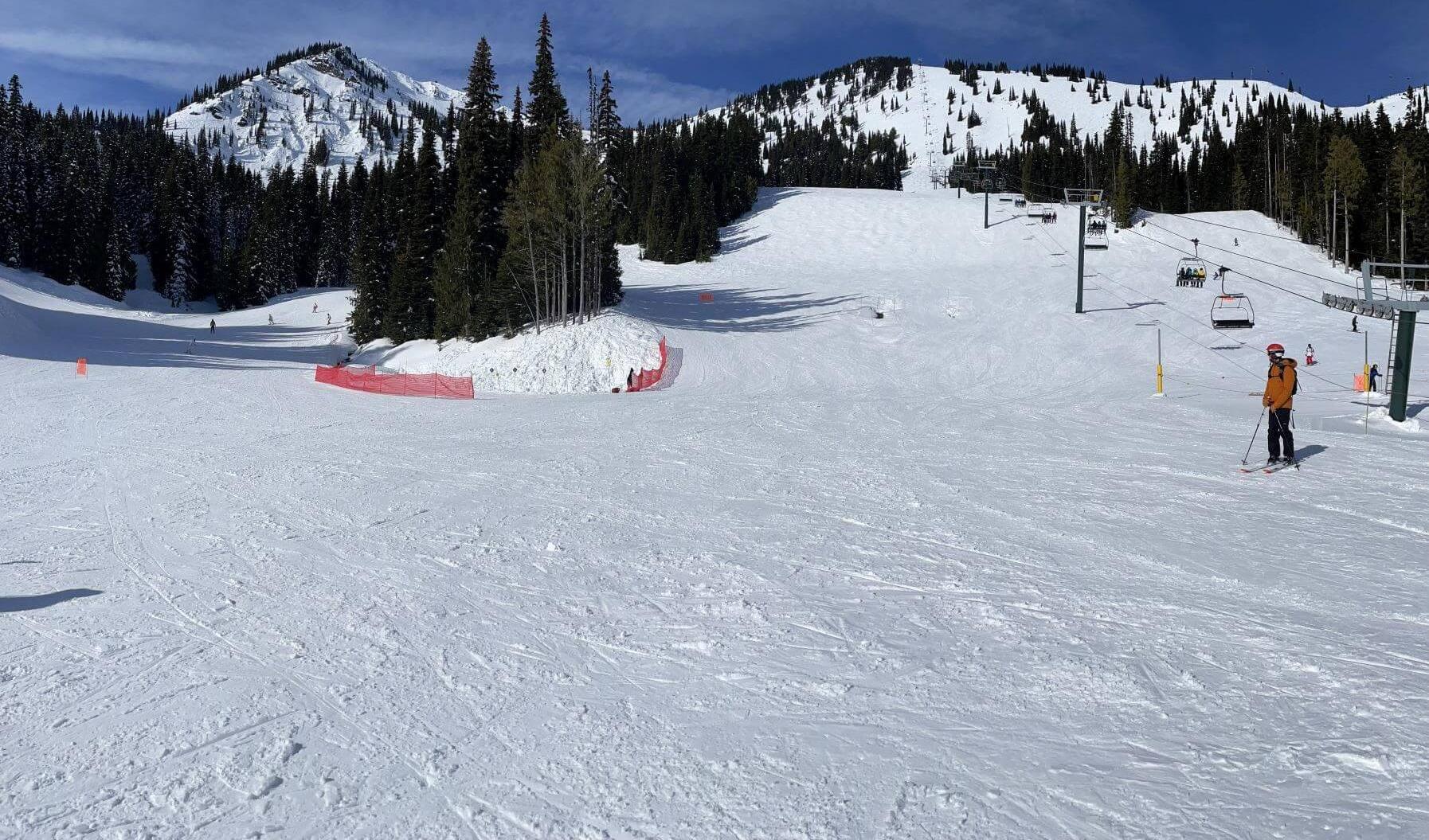A night in Paris I’ll never forget was seeing NTM take to the stage after a 10-year break along with 20,000 other fans who packed into the Bercy Arena for the sold-out concert.
Rappers Joey Starr and Kool Shen were reunited to celebrate their 30th anniversary as NTM, one of France’s most notorious hip-hop groups. I watched as they burst onto stage in front of a backdrop of flashing lights, to a howling crowd who nodded and rapped along as all their favorite tunes, from “Ma Benz” to “Paris sous les bombes,” pounded through the sound system.

How a Mix of Cultures and Influences Make French Hip-Hop Unique
The first time I heard French hip-hop music by groups like NTM, IAM or Assassin, was in the 1990s while visiting cousins in Paris. I remember thinking how much more depth French rap lyrics had in comparison to much of the anglophone hip-hop we listened to back then. It was the golden era of the movement in France, which began in the early ’80s in the US with five elements: rap or MC-ing, DJ-ing, break dancing, graffiti, and beatboxing.
My interest in French hip-hop peaked as listening to its artists helped me better understand how the various cultures of France fit together. The movement leaned toward the rap strand, led by artists often from the diasporas of former colonies, expressing views on integration, social exclusion, capitalism, and police brutality. A significant current from the Republic of Congo and the Democratic Republic of Congo arrived via Group Bisso Na Bisso in the late ’90s, marking a turning point for French rap, which until then was heavily influenced by sounds from the US and the UK.
In Paris, rap has always reflected societal shifts, with artists singing about colonization and life in the ghetto, helping to understand the city’s various communities. Today, rappers originate from a wider range of backgrounds and sing about topics relatable to a broader audience, reflecting the diversity of Paris’s population.
Names that come to mind include solo French rappers Orelsan and Jul – their lyrics, tone, and poppy beats provide a fresh take distinct from the traditional gangsta rap style. Moreover, rap duo PNL captivates listeners with their voices distorted by a vocoder. “Rap culture is so strong on its own, that it’s split off from hip-hop. We now talk about rap cultures, in the plural sense, due to the hybridization of the genre,” says Narjes.
Where to Find It
The diversity of French rap today encompasses numerous styles such as drill, trap, and afro-rap. Venues vary from enormous arenas for sell-out shows by legends like NTM and Booba to smaller, more underground locations. There are many exciting venues in Paris, including:
La Place
La Place is a hip-hop culture center in a glass structure straddling Chatelet metro station. It hosts high-profile events year-round, covering a range of hip-hop related activities, including conferences and masterclasses.
FGO Barbara
This glass-fronted venue in the 10th arrondissement supports emerging artists across all genres, including hip-hop, and hosts gigs for various performances.
Le Tamanoir
Le Tamanoir in Gennevilliers is a platform for urban and world music, hosting a variety of events and workshops throughout the week.

Artists to Know
Navigating the Paris rap scene with all its currents is no simple task, yet there are some notable “bosses” to know right now:
Damso
The Belgian-Congolese artist Damso significantly influences the French rap scene, characterized by love-themed lyrics infused with diverse styles, from gangsta to trap.
Jul
Jul is France’s biggest selling rap artist, known for his prolific output and a unique sound blending trap and “Thai beat” influences. His albums have gone multi-platinum, reflecting his immense popularity.
Ninho
Ninho has been active since age 12, drawing influences from Congolese music and contemporary pop. His albums have seen immense commercial success.
Gazo
Gazo is credited with popularizing drill music in France and was the first French artist to sign with Epic Records, home to global rap sensations.
Doria
Doria gained recognition through social media and has established her place in the French rap scene with her energetic style.
Le Juiice
A self-made artist of Ivorian descent, Le Juiice embodies her influences in her music and has released several EPs highlighting African cultures.
What to Wear
The evolution of French rap means that dress codes vary, influenced by individual artists. To avoid styling faux pas, check social media for the latest trends from your favorite rappers.
Take It Home
In Paris, record shops like Music Avenue specialize in hip-hop sections, while independent restaurants around the city offer delightful culinary experiences, complementing the vibrant music scene.





